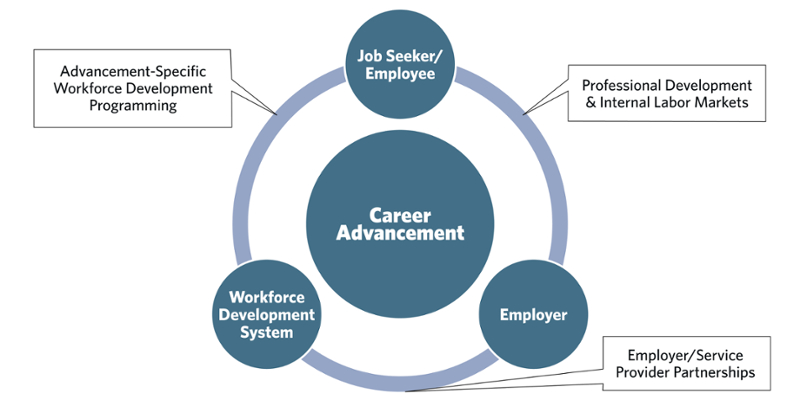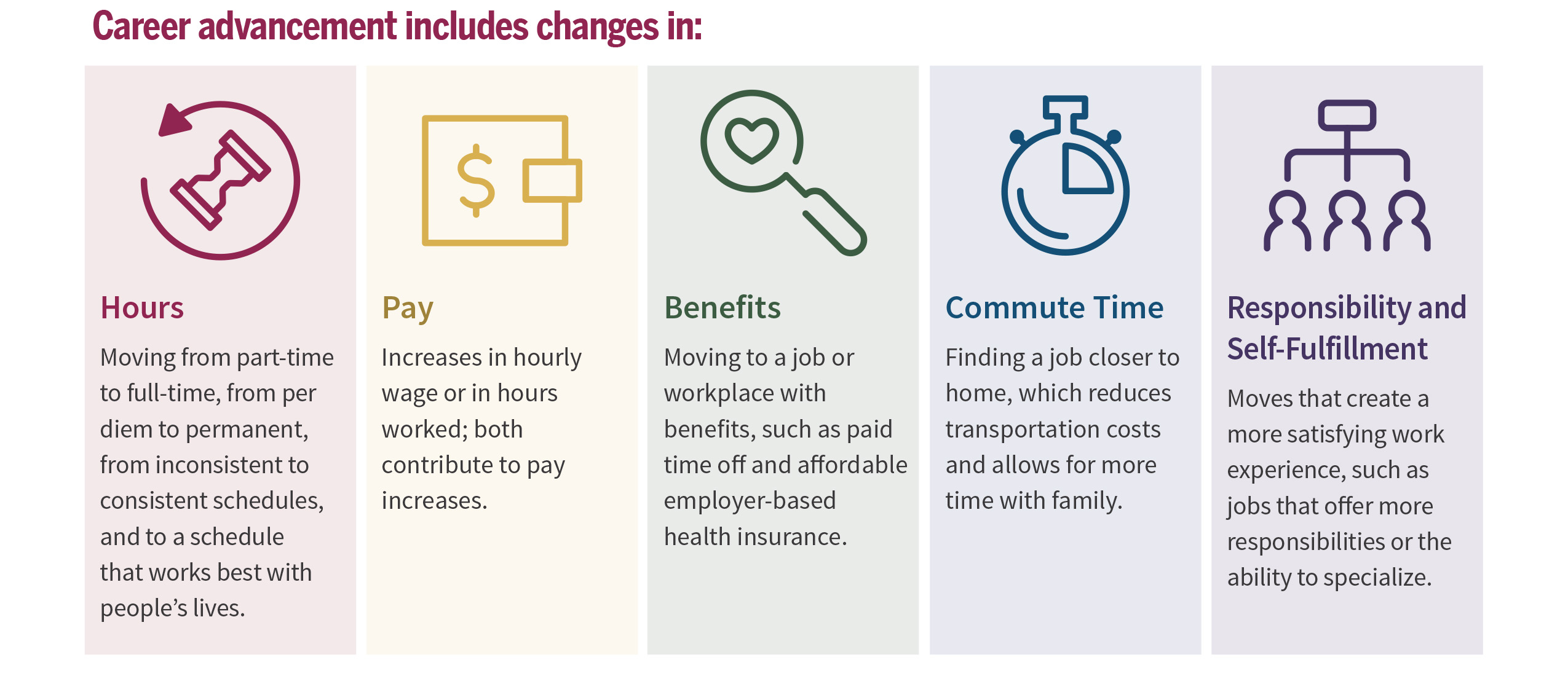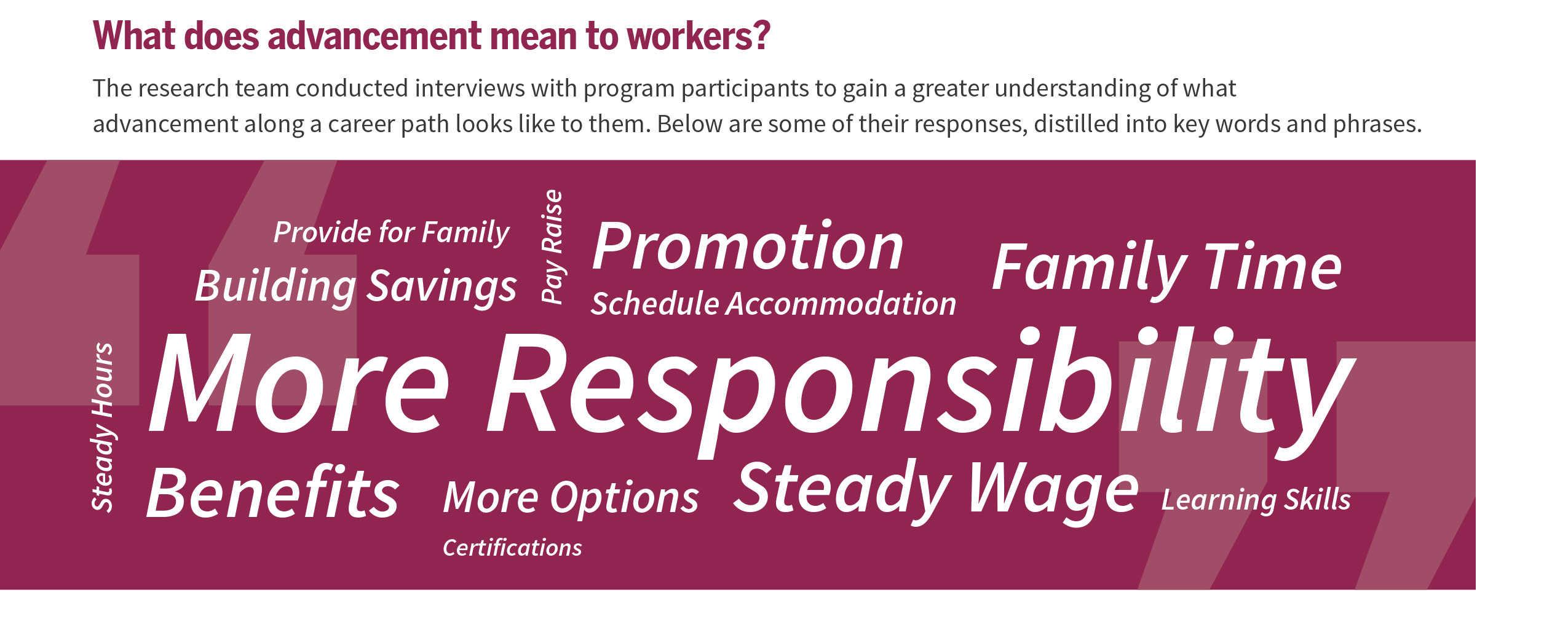Over the last decade, IERE's research (formerly known as IASP) has focused on understanding opportunities and barriers to career advancement in health care for low-income workers, with a focus on women of color. As a sector, healthcare offers the promise of well-paying, benefited jobs that are in high demand and will continue to grow with an aging population. Unfortunately, low-wage healthcare jobs are often the entry and the exit point to the industry for many workers. The majority of those who attend federally funded workforce healthcare training and education programs, pursue positions as Certified Nurses Aides, personal care assistants , and others that offer provide low wages, few benefits, and are often contract or “pay per assignment” with few opportunities for advancement or entry into full-time positions. What’s more, few are able to seek further training and advancement through the workforce development system, and women of color are more concentrated in these low-wage, low-opportunity jobs. When opportunities do arise, they often face barriers of discrimination and exclusion from advancement networks.
At the same time, the nation faces a looming crisis in care. Many specialized medical support and nursing positions are currently facing shortages. The problem of access and career advancement in healthcare is one that will effect employees, employers, and those who utilize our country’s healthcare system.
To develop solutions to create a more equitable and economically secure workforce, the research focuses in on three relationships that are crucial to advancement: the one between employers and employees, the one between employees and workforce development professionals and employees, and the one between employers and workforce development professionals. All play a crucial role in supporting equitable employee advancement.

Reframing Career Advancement
Career advancement is often equated with a rise in wages coupled with a new title or position. However, many workers have a much more complex view of advancement. In our study of Health Professions Opportunity Grant (HPOG) participants, we found that while pay and position are important, their views of advancement were closely related to discussions of “job quality” focusing on the smaller, achievable, micro-advancements that can lead to a more fulfilling, stable, and “better” work life in the short-term. This can mean moving from a part-time from a full-time job, receiving a range of benefits (such as retirement, sick pay, or subsidized healthcare), securing a different shift to spend more time with family, finding work at a location that shortens commute times, feeling respected on the job, or even one that makes someone feel more personally fulfilled.
Focusing on these micro-advancements allow us to more accurately model how advancement “works” for most low-income people in healthcare, working progressively to make their jobs better for them, rather than taking big jumps that require more education, training, and higher certifications. When utilized in the workforce development system as a framing tool for advancement, it provides a more accessible and meaningful way to guide and advise participants on meeting their specific goals.
Read about how we're rethinking career advancement
In our research, some key themes stood out:

In our interviews, Healthcare workers indicated that they took more than just pay into consideration when deciding whether a new job could be considered advancement. While pay was an important part of the equation, workers also considered hours, benefits, commute time, and a sense of fulfillment.
 IERE is incorporating these and other structural job advancements into new studies of career trajectories and advancement in order to fully account for all forms of mobility that healthcare workers experience and occur within the healthcare labor market as a whole.
IERE is incorporating these and other structural job advancements into new studies of career trajectories and advancement in order to fully account for all forms of mobility that healthcare workers experience and occur within the healthcare labor market as a whole.
In 2020, IERE was funded by the Administration for Children and Families’ Office of Planning, Research, and Evaluation as part of the Office’s Career Pathways Secondary Data Analysis Grant (CDPSA). Over the next two years, IERE will be delving deeper into the career trajectories and trajectory determinates for low-income health workers. Keep an eye out for upcoming work on career trajectories!
